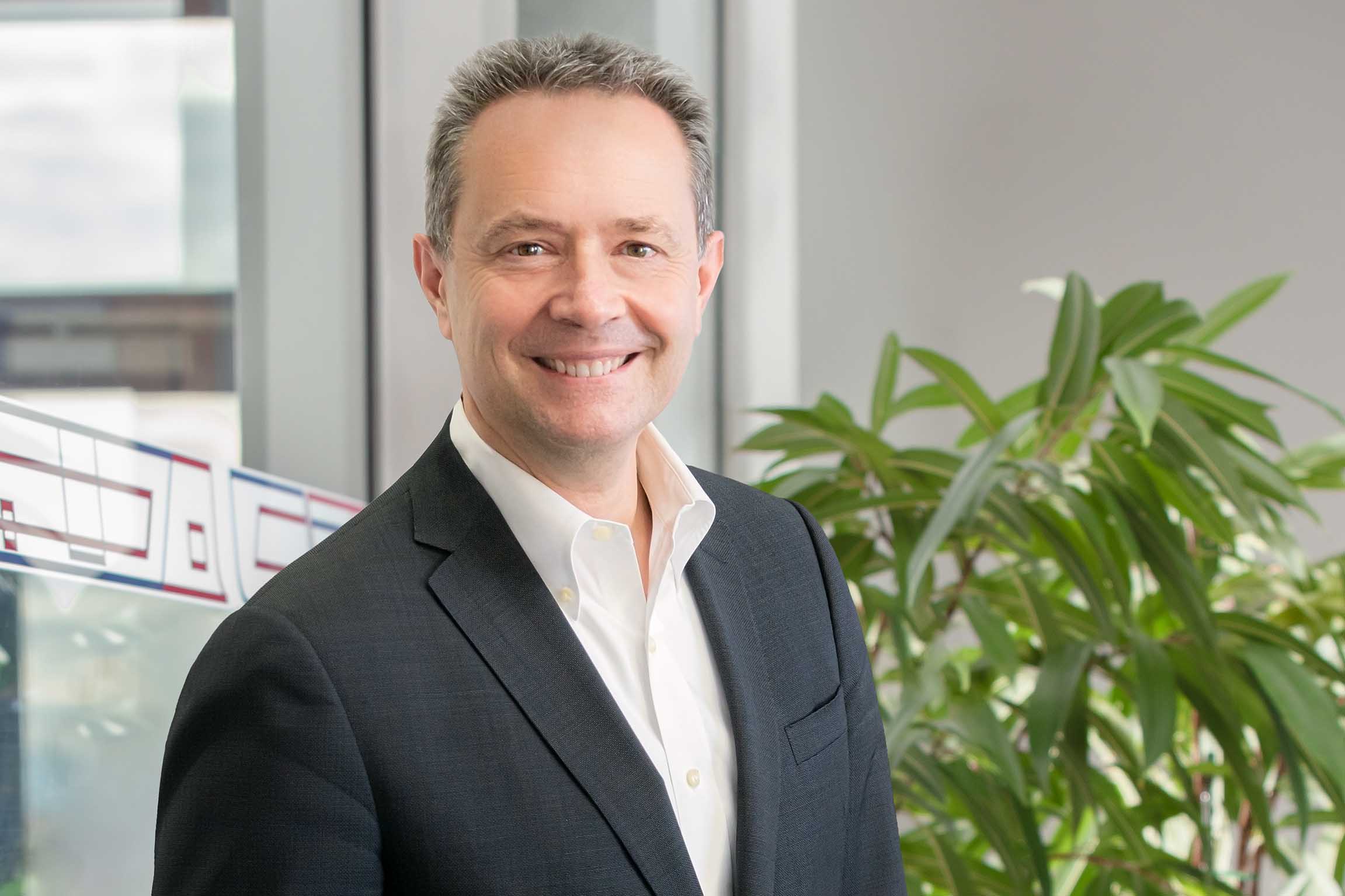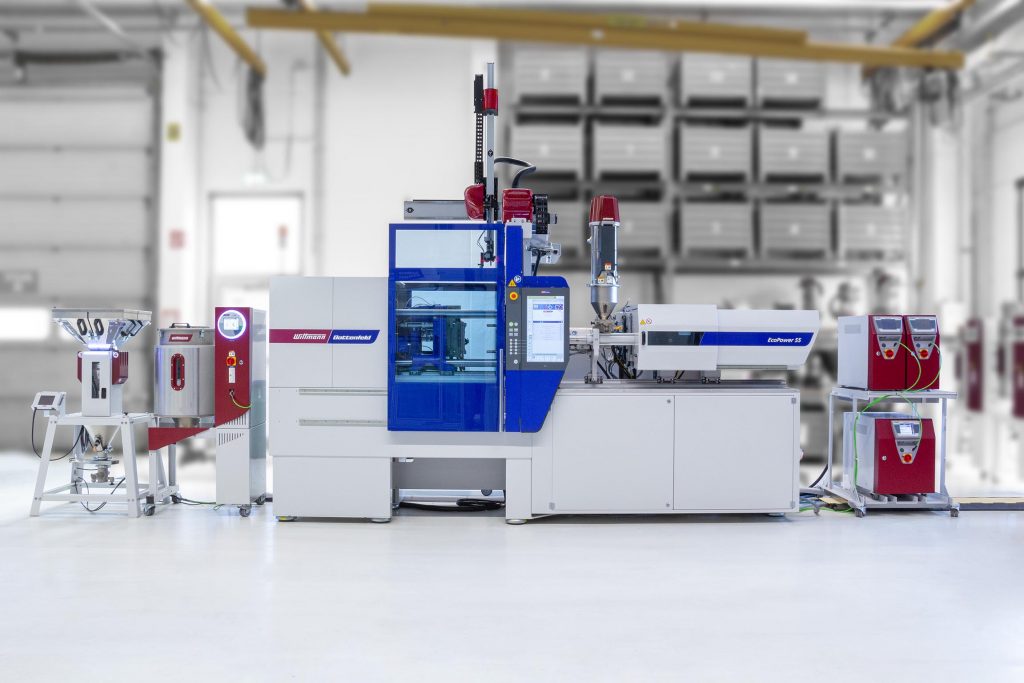
Mr. Wittmann, the Wittmann Group offers injection moulding machines and peripheral equipment. To what extent does digital manufacturing favour this holistic approach?
The holistic approach allows us to go beyond Smart Machines and offer intelligent and flexible Wittmann 4.0 injection moulding cells, a basic prerequisite for the realisation of Smart Factories. The individual injection moulding cells consist of fully networked injection moulding machines, automation systems and peripheral equipment, and are flexibly assembled by the user depending on the production requirements for a specific injection moulded article. The production equipment independently establishes communication, exchanges settings and recipes, and carries out compatibility checks. Within the Wittmann 4.0 injection moulding cell, horizontal communication takes place between the peripheral devices and automation, and the injection moulding machine. Externally, all networked participants are accessible, preferably via a gateway such as our Wittmann 4.0 router. As a single-source provider, we can offer our customers different expansion stages of digital manufacturing on the way to the smart factory.
What exactly is Wittmann 4.0?
Wittmann 4.0 is our holistic approach to an intelligent and networked injection moulding cell. A key advantage of Wittmann 4.0 – in addition to seamless and automatic device connection – is its high data quality. This is achieved through the correct automatic assignment of peripheral devices to a work cell that produces a specific injection moulded part. This starts with our injection moulding machines being equipped with an E63 or E77 interface and connected to an MES or ERP system. This expansion stage already makes it possible to determine the injection moulding machine’s most important key performance indicators. However, it does not record important process parameters of external peripherals that have a direct impact on the quality of the injection-moulded products, such as cooling temperatures for moulds, external hot runner systems, settings for material dryers and dosing systems, to name just a few. This requires the holistic approach, the injection moulding cell that is as comprehensively networked as possible.

Has digitalisation in your company led to a change in the product portfolio?
Digitalisation has resulted in an expansion of the product portfolio in that there is one model without, and one with extended external interfaces for practically all peripheral devices. We call devices with extended interfaces Wittmann 4.0-capable. These products include standardised interfaces, typically EUROMAP 82.x, developed for horizontal communication with the injection moulding machine, but also used for vertical communication with MES/ERP systems. Once universally accepted interfaces are in place, they develop a life of their own, and are also used for applications for which they were not originally intended.
How important are standardised interfaces?
EUROMAP interfaces are a necessary prerequisite for Digital Manufacturing. We therefore greatly appreciate that VDMA leads the standardisation activities within EUROMAP, establishing communication protocols that are fully accepted and adopted by the industry. We are confident that the EUROMAP interfaces will put an end to the proliferation of different manufacturer-specific communication protocols. These have never reached the critical mass in our industry to define an industry standard. The ability of equipment manufacturers to focus on solid and reliable implementation of a universally accepted standard that accompanies standardisation will move our industry forward in the many upcoming tasks for data-based functions.
With increasing digitalisation, the danger of cyber attacks is also increasing. What needs to be done in terms of cyber security?
This is a big issue for customers. We have integrated a firewall into Wittmann 4.0. It is optimised regarding the typical use of an injection moulding cell and is designed to be very restrictive. By default, practically all communication ports to the injection moulding cell are closed that are not intended for causal communication of the injection moulding machine and the connected devices to the outside. Even specifically permitted communication is continuously checked for plausibility, the so-called intrusion detection. If the communication volume exceeds the expected and typical data volume, there could possibly be a DoS attack; this is then prevented.
What is the next big challenge within digitalisation in your company?
We’re continuously working on the expansion of our intelligent and adaptive HiQ algorithms – HiQ-Melt for monitoring material quality and HiQ-Flow for viscosity-related compensation of temperature and batch influences. Another development focus is on future concepts for the operation of injection moulding machines and robots, which are new to our industry. For example, the use of voice recognition and the support of augmented reality for the display of additional information and future actions. The consistent further development of our Wittmann 4.0 injection moulding cells is also very high on our development agenda.
Industry interviews on the road to the K:
The world is facing major challenges: Climate change must be fought; the environment must be protected, and resources must be conserved. It is also important to make good use of the opportunities offered by digitalisation. The plastics industry has a key role in this process because plastics are ubiquitous in the world.
Climate protection, digitalisation and the circular economy are therefore also the three major topics at K 2022, the world’s leading trade fair for the plastics industry. To get in the mood for the industry meeting in autumn 2022, the VDMA is letting representatives of the plastics machinery industry and all other stakeholders in the sector have their say through weekly interviews.
VDMA Plastics and Rubber Machinery
More than 200 companies are members of the trade association, covering over 90 percent of the industry’s production in Germany. Ten percent of our member companies come from Austria, Switzerland and France. German member companies represent a turnover of 7 billion euros in core machinery and 10 billion euros including peripheral technology. Every fourth plastics machine manufactured worldwide comes from Germany in terms of value; the export quota is 70 percent. Ulrich Reifenhäuser, managing partner of Reifenhäuser GmbH & Co KG, is the chairman of the trade association.